The Mate’s Guide to Burnham of 1903 tells us that the Burnham Golf Club was formed in 1890 with a 9 hole course, extended to 18 holes in 1897. By the time of the guide the size of the course had been extended to 3 miles. It was laid out by Chas. Gibson of Westward Ho “who has taken every advantage of the natural suitability of the ground…..in fact, nature has provided bunkers such as man could not devise and yet the ball is always playable if one knows how……..The course, as a rule, punishes erratic driving and there is a hazard in front of every tee………there is a charming variety about the holes rarely to be met with on other links. A cosy pavilion, facing the first tee and the last hole, supplies all the needs of a golfer.”
The initial idea seems to have come from a Catholic Priest, Canon Kennard who spotted the potential of the land whilst taking a short cut home across berrow Warren. He discussed this with his friends Walter and Thomas Holt (of the local Brewing Family) and the club was established by them and a group of 12 other gentlemen. Charles Gibson, a golf professional, had confirmed that the land was suitable and designed the original 9 hole course. (from ‘Between the Church and the Lighthouse – The History of Burnham & Berrow Golf Club’ by Philip Richards, Grant Books, 2001)
The Guide tells us that by 1903 the membership was over 250 and the entrance fee was £5. 5s. 0d. plus an annual subscription of £1. 1s. 0d. Visitors were admitted by introduction of a member or the secretary and paid 2s. per day or 10s. per week. The Ward Lock Guide to Weston-super-mare from around 1915 tells us that “visitors introduced by members are admitted on payment of 2/6 day, 10/- week, £1 10s month.” The guide also tell us that ” The Ladies’ Golf Club has a n excellent croquet lawn and tennis court.”
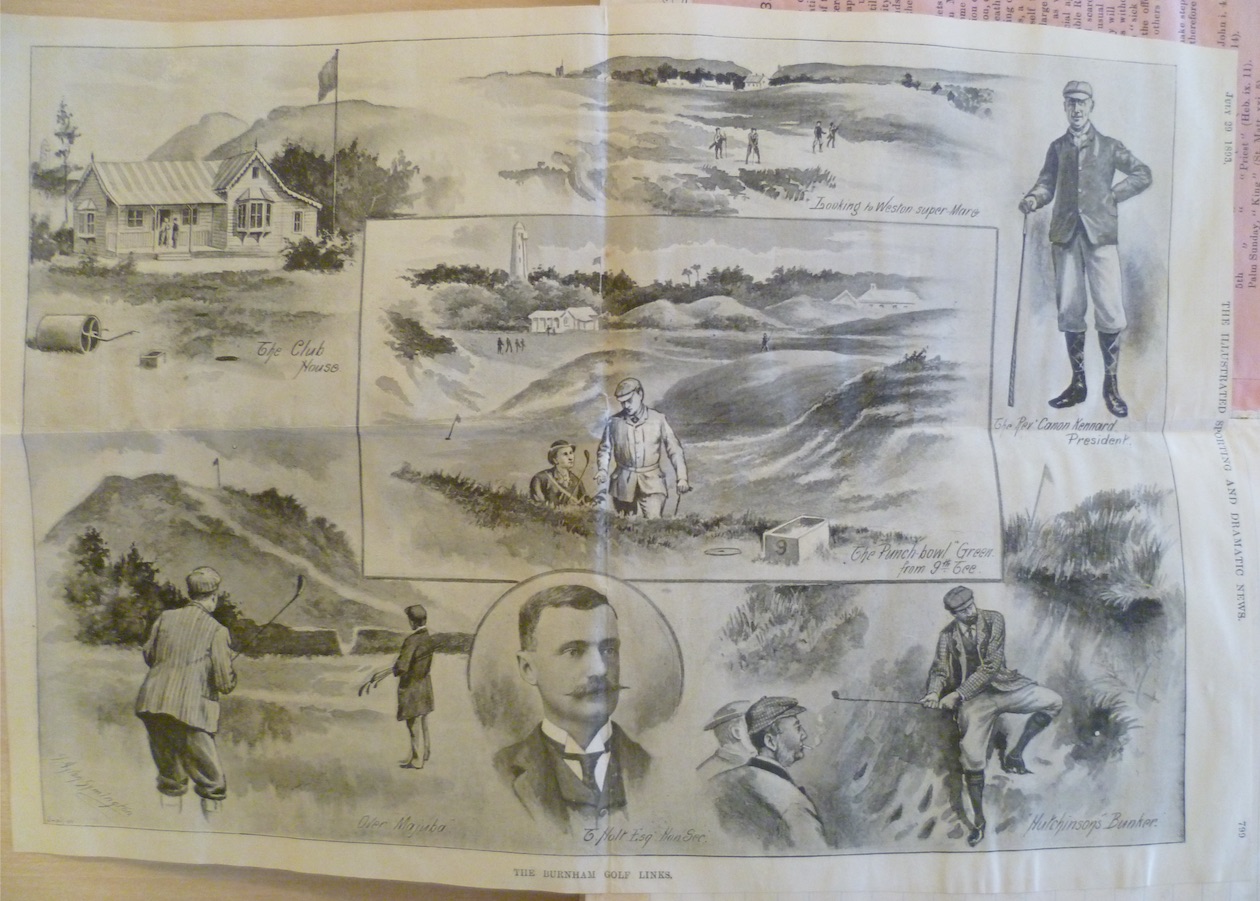
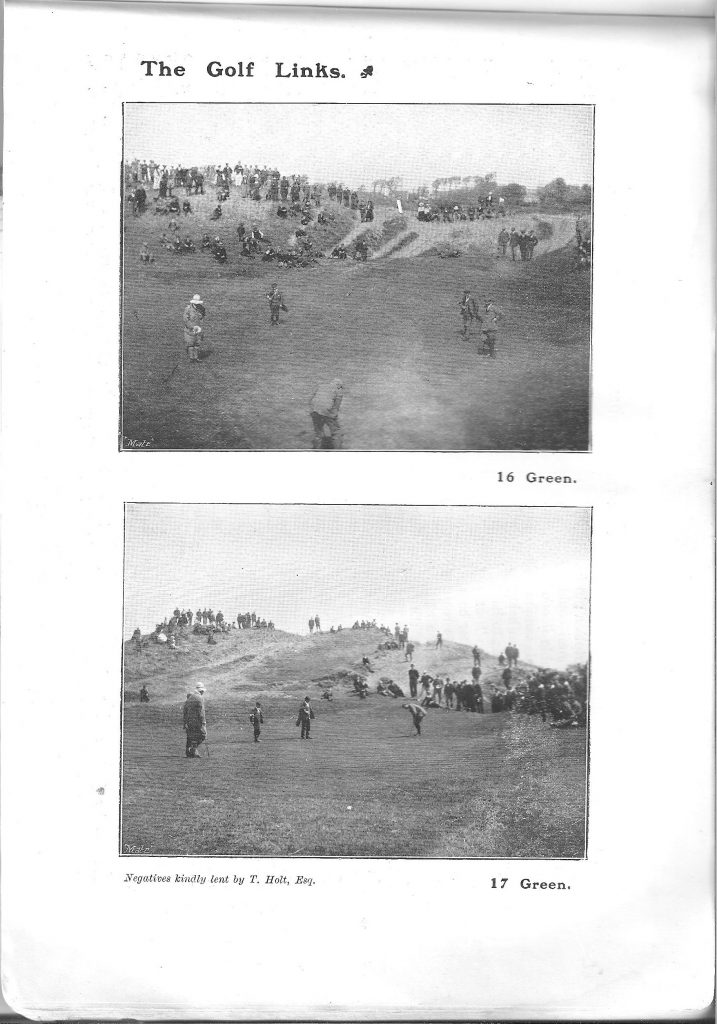
Photos above from the Mate’s Guide 1903
Pictures below from the Golf Guide (1910’s?)
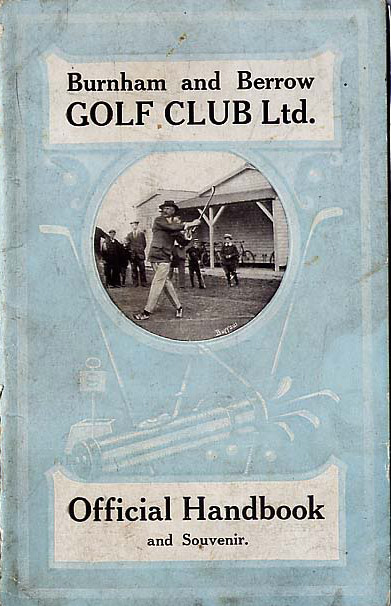
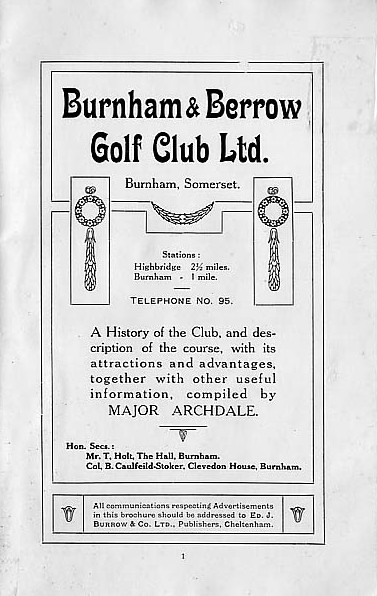
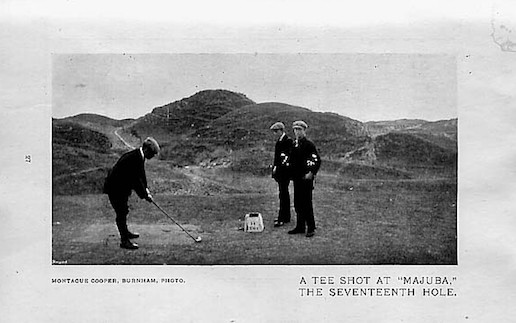
The picture above indicates that the 17th hole was named ‘Majuba’. It is likely that this was named after the battle of Majuba Hill (1881, First Boer War), although it is curious given this was a British defeat. One wonders whether the hill in the background was anything to do with the naming after a battle involving a hill considered by some to be unscaleable! The picture is by Montague Cooper, local photographer.
The 1903 guide describes the ladies club as being adjacent to the mens course and “situated in a most picturesque position among the sandhills, and command an extensive view of the surrounding country.” The guide claimed it to be one of a very few ladies’ clubs in the country to have an 18 hole course. The fees at that time were approximately half those for the men’s club.
The Ladies club began in May 1892 with six holes and a pavilion, just south of St Annes, home of Viscount & Viscountess Cave. The entrance fee was half a guinea and the annual subscription was 11 shillings. Lord Cave became president of the the club in 1820. Due to protests about rigidity of the rules a number of ladies formed a break-away club on land to the north of St Ann’s, eventually the two clubs reunited to form the 18 hole course. The ladies club closed in 1948 due to erosion by the sea. The ladies went on to form their own section within the main club.
The Ward Lock Guide to Weston-super-mare from around 1915 tells us that “This course is open to gentlemen as well as to ladies. Entrance fee one guinea. Visitors are admitted on the payment of the following green fees: 1/6 a day, 7/6 a week, £1 a month. Gentlemen: 1/6 a round, 2/- a day, 10/- a week, £1 10s a month.”
Here are two pictures showing how the ladies club house developed.
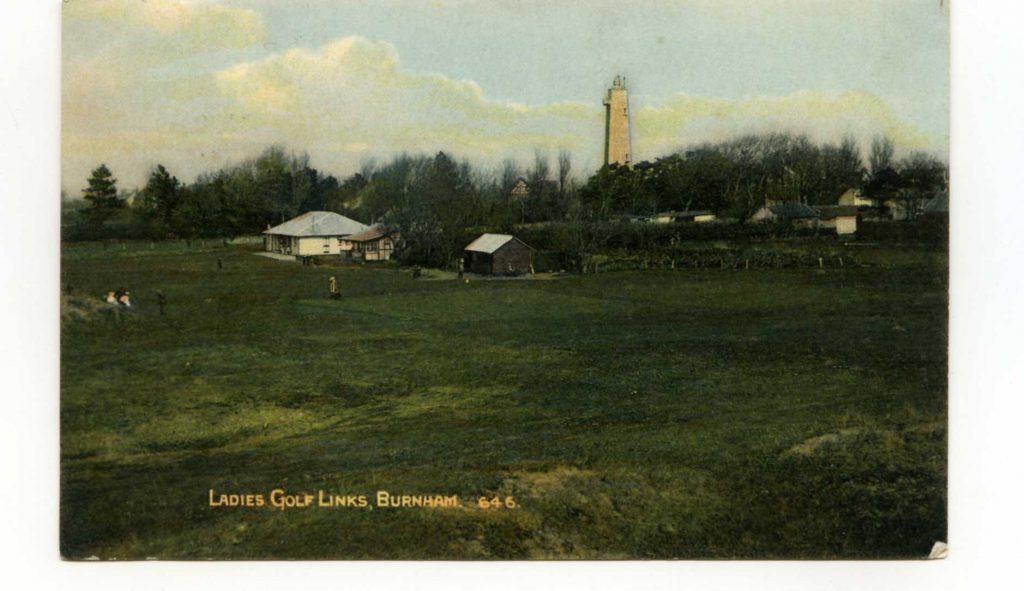
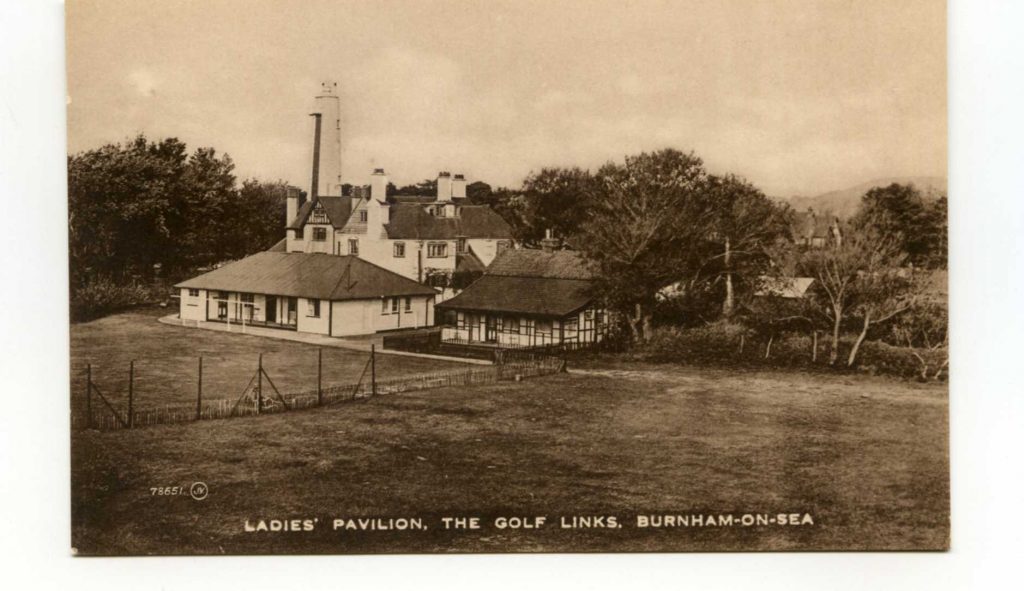
Bertha Thompson was winner of the Yorkshire County Ladies Championship 1902 and the British Ladies Championship in 1905. The following year she defended her title at Burnham and Berrow GC. She reached the final after 6 rounds and in the first 3 never lost a hole. She was therefore expected to win her second successive title. However, in the final she was defeated by Mrs Kennion (Brighton and Hove GC) by 4 and 3. (Information from Ganton GC website https://www.gantongolfclub.com/Championship-Course/Heritage/Bertha-Thompson.aspx).
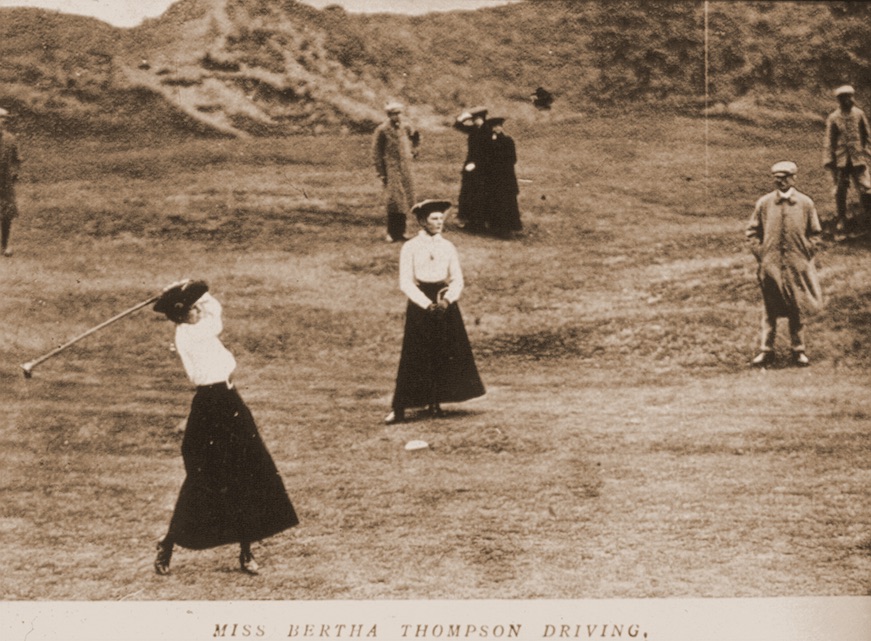
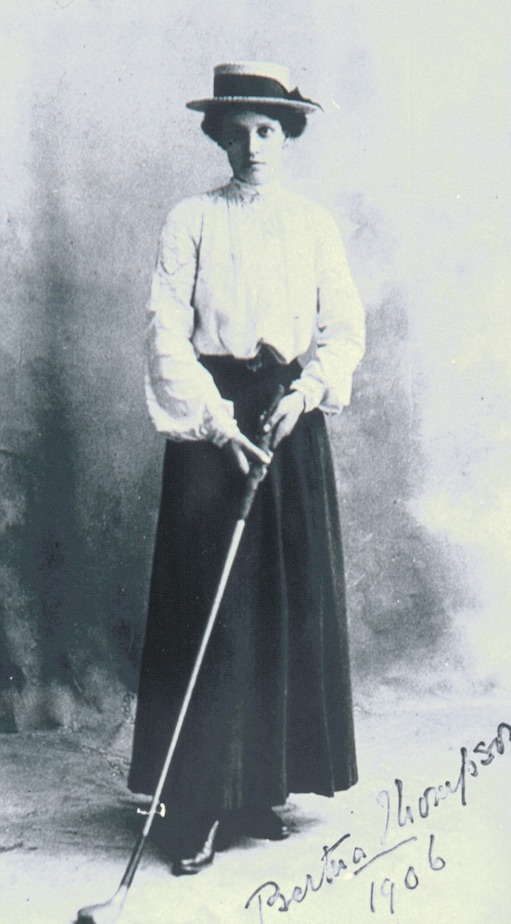
Here is a clipping from the diary / scrapbook of Rev Theodore Dupuis:
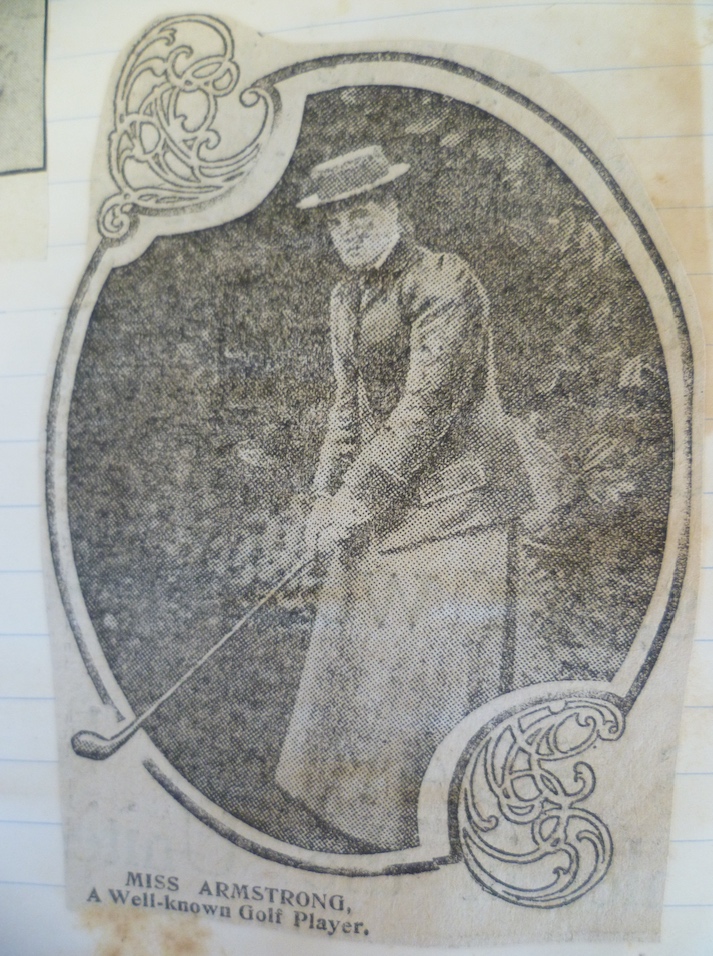
We do not have any other information about Miss Armstrong but it seems likely she was a local golfer of renown.
Below is an extract from the Golf Guide:
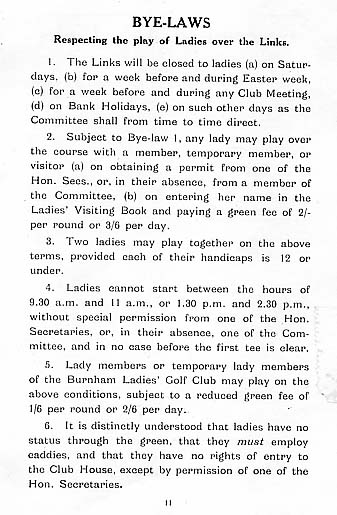
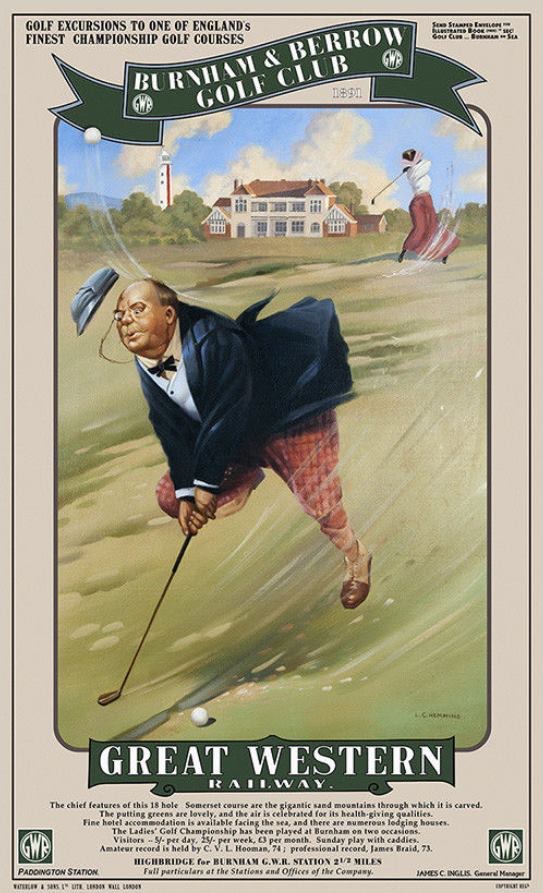
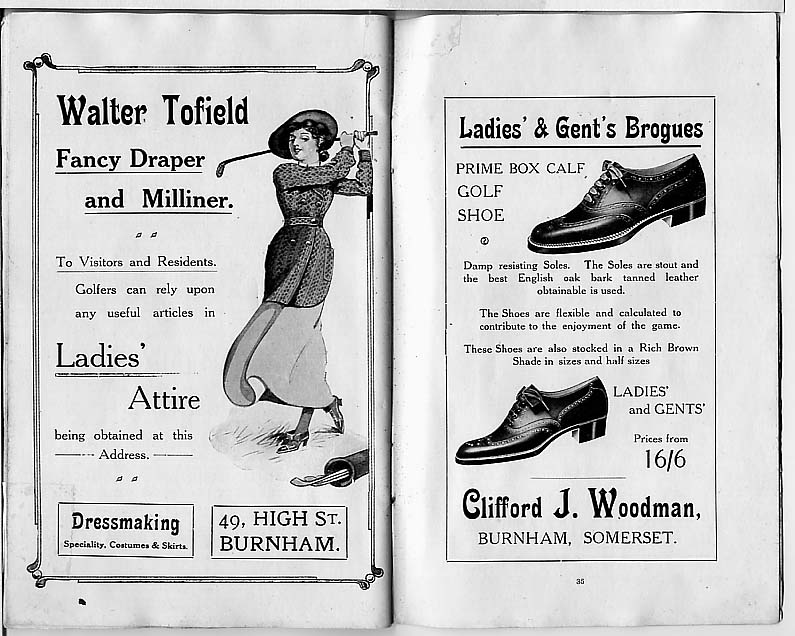
The course featured in a Players cigarette card set, date unknown:
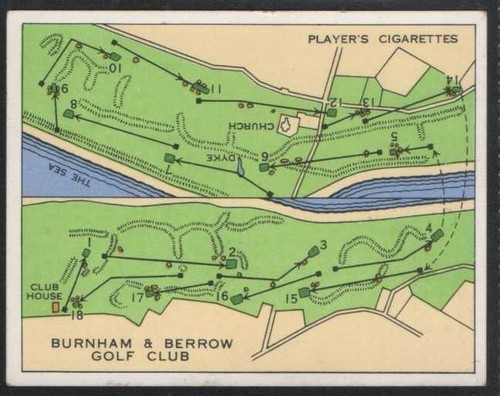
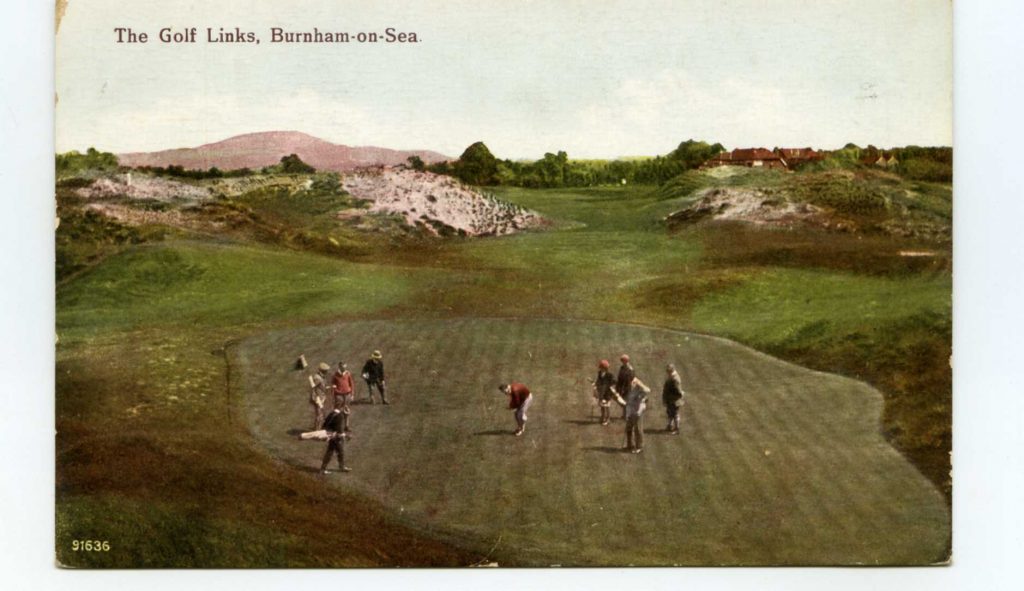
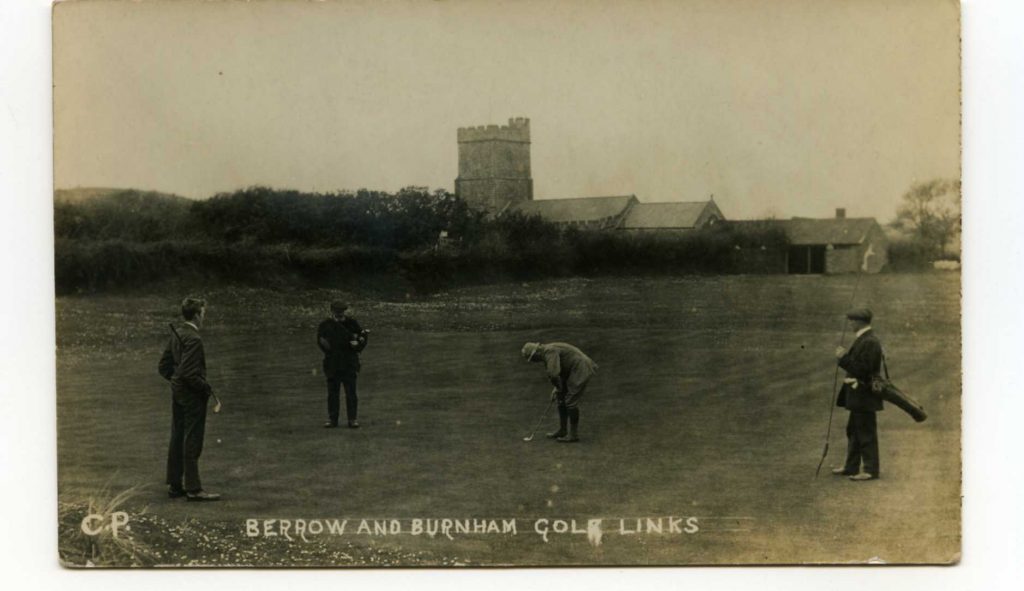 Above is one of Charles Pearson’s postcard photos
Above is one of Charles Pearson’s postcard photos
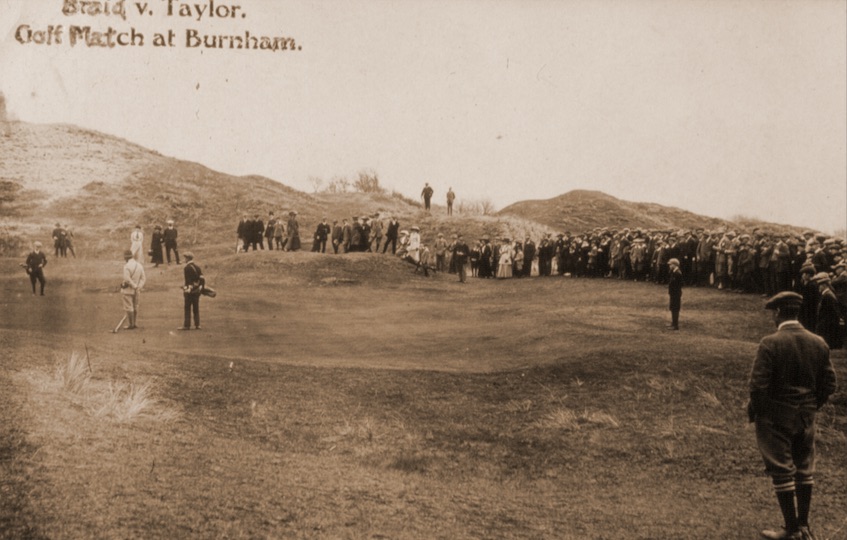
James Braid (1870–1950) was a Scottish professional golfer and a member of the ‘Great Triumvirate’ of the sport alongside Harry Vardon and Englishman John Henry Taylor (1871-1963). Braid won The Open Championship five times between 1901 and 1910. Taylor was also a 5 times winner between 1894 and 1913 (info from Wikipedia).
The Whitcombe brothers, from Berrow, were also accomplished golfers, Reg being British Open champion in 1938.
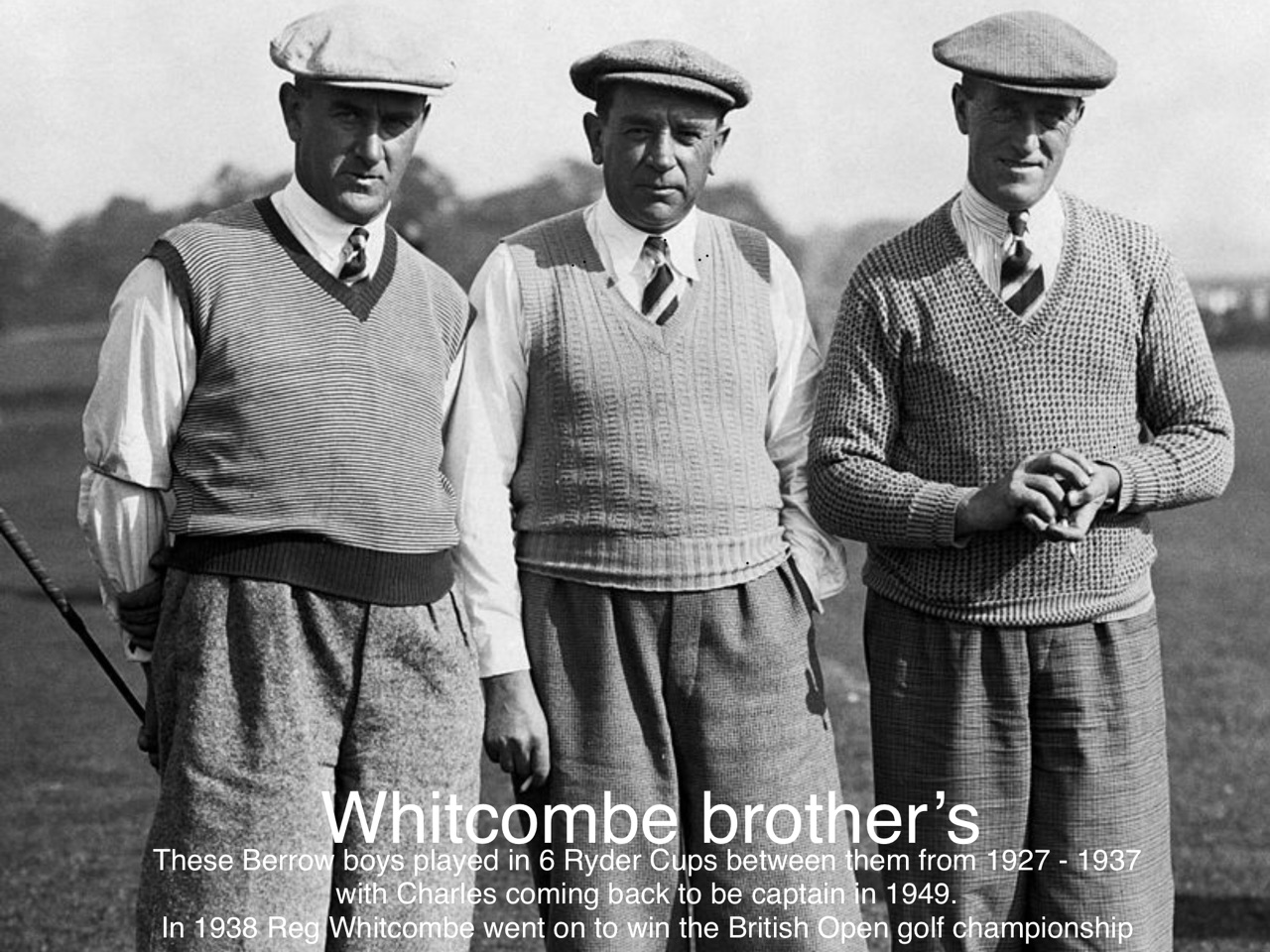
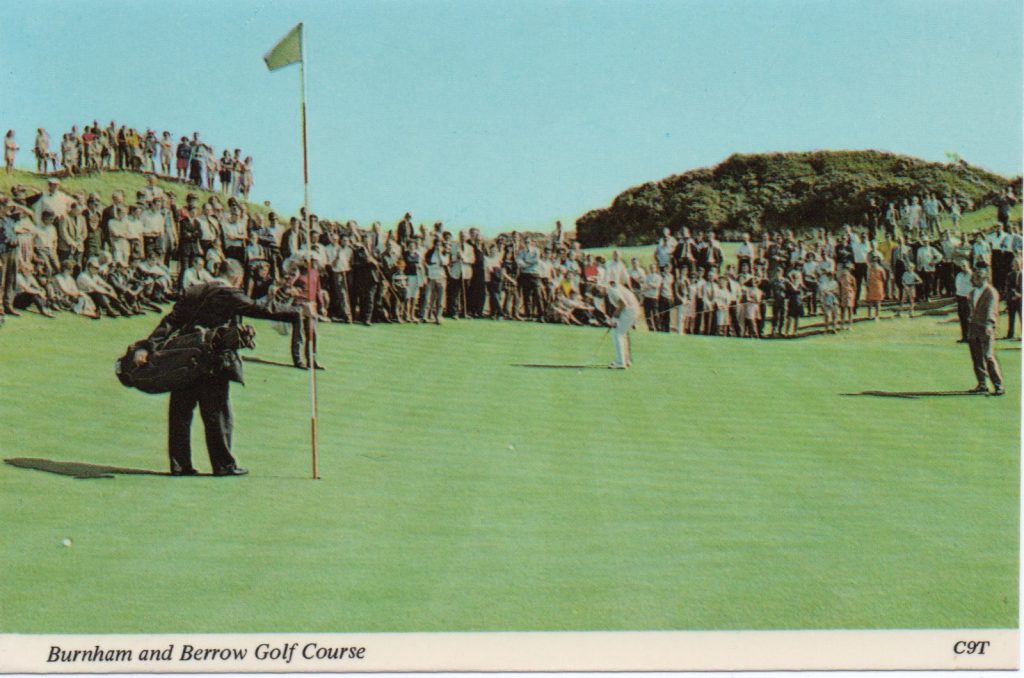
Postcard of a tournament, possibly 1960’s.
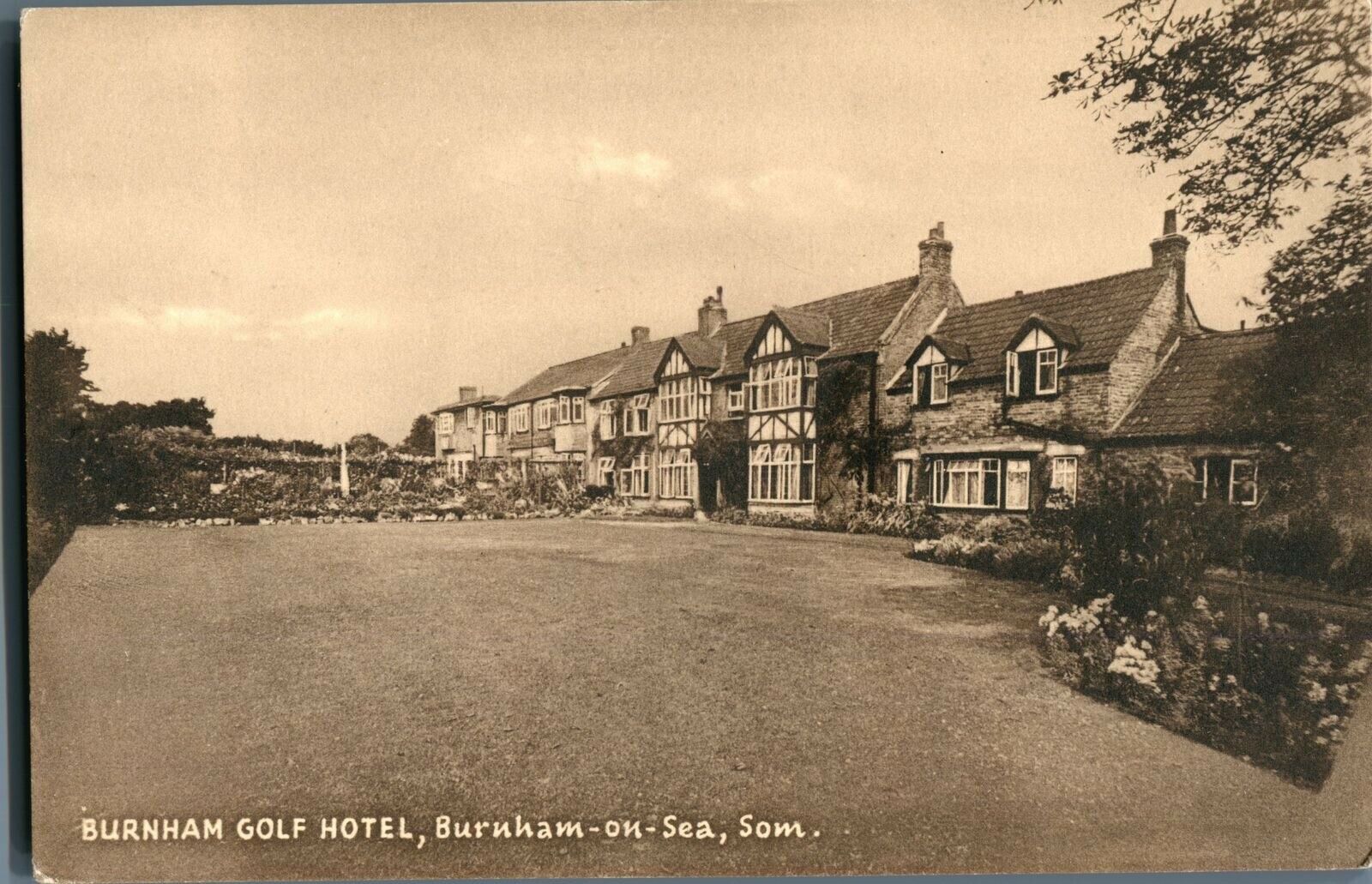
Above is a postcard of the ‘Golf Hotel’, situated inland of the course on the Berrow Rd. In 1953 it became Kathleen Chambers House, an RNIB care establishment.

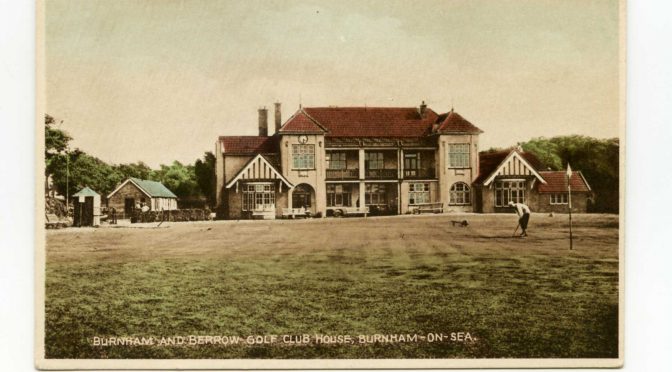
My grandparents were very into their golf. Grandma – Norah Sara was Ladies Captain in the 70s and Dennis Sara (the dentist) was Captain in the 80s. He was there when Ray Reardon came to play golf and snooker against Grandpa- Grandpa lost at both! They were both into the Am Dram societies and were there when the BoS amateur dramatics soc divided between those who wanted to do G&S and those who didn’t! Norah was a member of both and then became President when the two rejoined.
Grandma was Inner Wheel and Grandpa was Rotary. I have asked my dad to dig around for some photos and programmes. Nigel Sara (dad) was in Iolanthe.
Thanks for your memories Nathalie and your separate comments on the entertainments page.It would be good if you could find photos you could share.